Dear WinkWorld Readers,
Normally, in this blog, I try to share some little tidbit, often related to kids and cows, or pedagogy and prairies. However, in this issue, I am not sharing; rather, I am asking you to share. In spite of the fact that I have devoted my career to languages and literacies, I do not think that I have ever had a truly dyslexic student in one of my classes. However, I have recently met several students (middle grades), who seem to have, what I perceive to be, symptoms of dyslexia: b/d reversals; lack of double consonants in writing; making meaning of only the first syllable or two of longer words when reading, etc. Interestingly, the students I have met love to read and to write, in spite of their unique challenges.
MY QUESTION: What can mainstream classroom teachers do with reading/writing activities, which will benefit these students? Yes, I have checked around the internet, but I am looking for good suggestions from people who have real experiences with dyslexia.
Thanks.
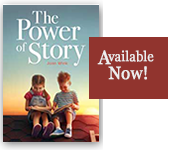
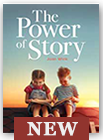
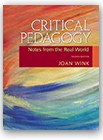
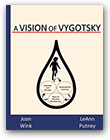

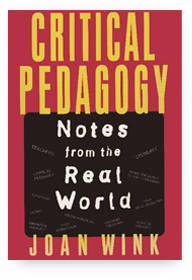

at 3:35 pm
I didn’t know anything about dyslexia until I had my daughter tested when she was in fourth grade. When the school psychologist started talking about Helen and why they diagnosed her as having dyslexia I was very surprised. I fit everything they were saying about my daughter. I had come up with my own solution which helped me to survive school, even getting my masters degree from Stanislaus State.
I always thought I was stupid because in elementary school other students were reading and the books they read were getting longer and longer. I couldn’t read. I loved books. Mom read aloud every night at bed time. The stories were great. I just couldn’t read them. Mom told me that if I wouldn’t move my lips and tongue as I read I’d learn to read faster. Don’t point at the words as you read. It slows you down. Just keep trying and you will get there. I listened very carefully to class discussions and took notes (probably only I could read them). I was completely stressed when in 7th grade we were assigned a Mark Twain novel. It was totally impossible! I was freaked out. I did pass all the tests and received mainly A’ and B’s on report cards. I remember hating to sit near the front of a classroom for fear of being called on but by sitting in the back I couldn’t concentrate on whatever was written on the blackboard.
In collage I took a children’s literature class and we had to read lots of children’s books. I found out I could read these books! I was so amazed. It wasn’t difficult. There weren’t too many words on a page. My eyes didn’t have to travel too far before returning to the next line. I did advance on to more advanced books until now I can’t go anywhere without my Nook. I read in line at the bank and grocery store or if I’m stuck at a train crossing. I read every night when I go to bed.
The things I found that worked for me and for my daughter –
I started reading with a blank book mark. Drawings or printing on the book mark is way too distracting. Don’t move the book mark back and forth only down as you finish a line of written text. It is okay to move your lips as you read. (In college I found that I had to go to the back bedroom and read my textbooks out loud. That way I not only read, I listened to what I was reading. It was far too easy to skip over words that I said incorrectly when reading silently. If I read out loud I heard that the sentence didn’t sound correct.). I have graduated to moving my finger down the left side of the page as I read. I have a lot of difficulty reading a line of text and automatically moving to the line below.
When I was teaching elementary school (for 26 years in grades 1-3) I made all of my students read in grading group using a blank book mark. I told the students that I used one and it really helped me and I didn’t want to feel weird if I was the only one using one. I was always surprised at how many students used their book marks even during silent sustained reading. And a side fact – the reading scored for my classes were always very high. In reading circle I often had students ‘read to a period’ before the next student had a turn. I didn’t like the ‘read the next paragraph’ thing. In school I would count the students in front of me and then count the paragraphs and figure out which one was mine. Then I would practice reading and reading and reading it until it was my turn. I had no idea what the other students read. I was only concerned with my paragraph. When the students were in reading circle and had to follow along while others read the circle reading moved by very fast. Students had to keep up. I never minded if they moved their lips. They just had to know where we were in the story. Reading a whole paragraph can seem insurmountable to someone how feels ‘stupid.’ Reading only a sentence or two is not so bad. By the way not all periods are at the ends of sentences. Dr. Wink. We used the periods at the ends of sentences only. Not a comma, not a question mark, not an exclamation point. The kids thought this was cool. And all of the students were following along as anyone was reading. This helped with tracking skills.
I never read a book to the class unless I had read it to myself before. If a student brought a book to class and asked me to read it to the class I would use my recess or lunch time to quickly read the book. Then I could read it to the class because I knew what the story was about and I would probably say the correct words.
Taking notes, not whole sentences, just a word or two, to remind you what you read is really good. Often a student is concentrating so hard on saying or reading the correct words that they totally forget what they have read. My daughter had been taught this by me. Then after high school she went to cosmetology school in San Francisco. She took notes every day in class. When it was time for her to take the state tests for her license she transcribed and illustrated her notes so she could study. I think she got a perfect score. She went back to the school in San Francisco to show them her ‘booklet.’ For the next 3-4 years the school ended up selling 25 copies of her book to their classes for $20 per student. Not bad for a daughter that also knew she was ‘stupid.’ I hate that word.
Dyslexia was the pits for spelling bees. I was always out during the first round. I found invisibly writing the word on my hand before I spelled out loud sometimes worked. But it’s difficult to memorize spelling and to see it in your mind if those same letters are always moving around or changing shape.
Which brings up the topic of my playing music. I love to play the bass and now I often go back to playing my guitar and cello as well. I was so excited to be principal bass of the Modesto Symphony for 26 years. As principal bass I was given the music a couple of weeks before the first rehearsal. That way I could practice the part and write in bowings and fingerings for the rest of the section. Actually that way I could read the music very SLOWLY several times until I could get the part learned. Then I could speed up my playing. If I sight read the music ‘at tempo’ and then was asked to play it again you would hear a different piece as those darn black dots had moved to different lines or spaces on the page. It made no sense. I wouldn’t know if the first, second or third reading was the correct one. Then in rehearsals I had/have difficulty in looking up to have eye contact with the conductor and then looking down and knowing where I am in the music. I try to only look up if there is some sort of mark in the music that will help me find my place. Otherwise I depend on seeing the conductor ‘out of the corner of my eye.’
On the first day of class every year I would do the typical ‘introduce yourself’ activity with the students. For my part I always told them that I had two learning problems, one they could help me with and one they could not. These didn’t mean that I was ‘stupid’ but that some areas of learning were a bit more challenging for me. I told them about my dyslexia and how sometimes when I read aloud I might say an incorrect word but that they should just hang in there because I would usually correct myself. (No one ever laughed at me. The kids were cool.) And then I told them about my auditory processing difficulties. I explained that if they spoke to me they had to look at my face. If I couldn’t watch their lips moving I couldn’t coordinate what I was seeing and hearing. If they looked away I probably wouldn’t understand what was being said. (I find this completely frustrating if watching TV or a movie and the soundtrack is a bit off. I usually concentrate on the actors’ lips so if the speech doesn’t match the lips I have to close my eyes. It helps a bit.) In school, even through college, I always tried to sit where I had a direct sight line to the speaker’s face.
These are a few thoughts for now. I’m really excited to hear what others suggest to you. I will reread my letter to you and will probably write some more tomorrow. This is such an important subject and the general classroom teacher doesn’t know enough about it.
By the way I used a 5×8 blank card when I took all those state tests for my teaching certificates. It helped with stress and reading. Worked perfectly.
Sarah Klein
at 6:02 pm
Thank you so much for sharing your painful, and yet very successful story! Your experience will benefit others! Thank you so much. When you were in my grad classes, I had no idea that you had suffered from dyslexia! And, oh, how I remember you playing your bass in our class one night when we needed to go find more chairs to carry into the room. You are amazing.
at 10:27 pm
Another thought.
I had my father make wooden stands for each student desk. These stands held the student’s book at a 45-50 degree angle. Having the book flat on the desk was not conducive to comfortable reading. When not in use for reading the boards were placed on their side on the floor next to each desk. When on the desk they were used to hold a book in a position where the words were easy to see. The angle allowed the student to sit comfortably with their head up. A head is a very heavy part of the body. If always tipped forward it can cause neck muscles to stress and tighten.
The boards on the desk on their side would create a partition between students, a sort of study carrel.
Writing – spell check on computers has helped a lot. But for myself I have found the importance of rereading at least twice all written work. I remember the time I was in a hurry to finish hand writing comments on the students’ report cards. The day they were sent home I had a parent bring in one and ask me to read the comments. I couldn’t. I have no idea what I wrote. There were letters separated in to words but many of the letters didn’t spell words. I was so embarrassed. Now even with spell check the computer sometimes thinks it knows what I mean to write and it will write a real word but not my word. So there again I must reread everything I write. (By the way, I just caught my iPad writing ‘retread’ instead of ‘reread.’
Typing has always been a problem. I have never mastered looking only at the screen. I look only at the keyboard and look up only at the end of a sentence. If I look at the screen and glance at the keyboard or visa versa, I lose my place and can’t see where I am.
Reading and writing is a challenge but I have learned that I am smart. I just learn slightly differently. I’m okay. I’m good. I can do it!
at 10:35 am
Sarah, thank you for your very specific and extremely helpful suggestions: the angle of the book, while reading–I never would have wondered about that.
Re-reading and reading aloud: Yes. Spell-check: Yes, we have seen that the students will often choose another word, not their own word, as in reread and retread.
Typing: I didn’t know that one, either, and think of these kids have to take these mandated tests on a computer now.
I am so sorry about your pain, when the parent returned a report card to you. This is such a clean example of the immense challenges these children face. Your suggestions will bring a ray of sunshine to their constant struggles.